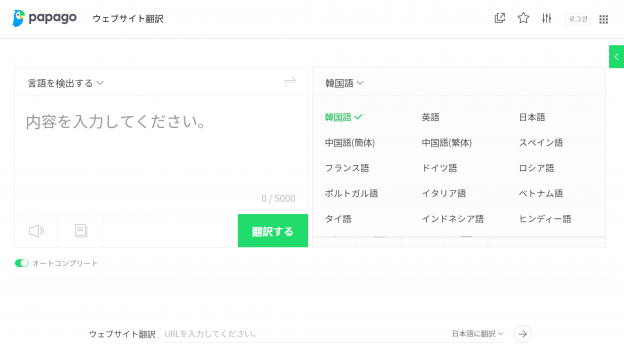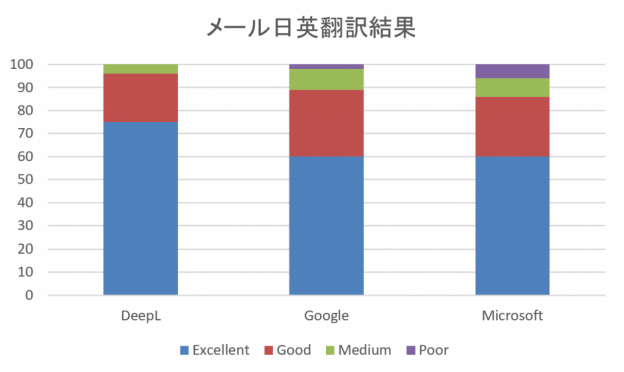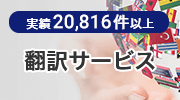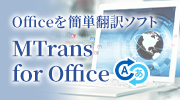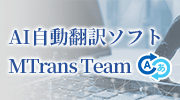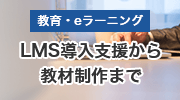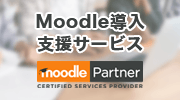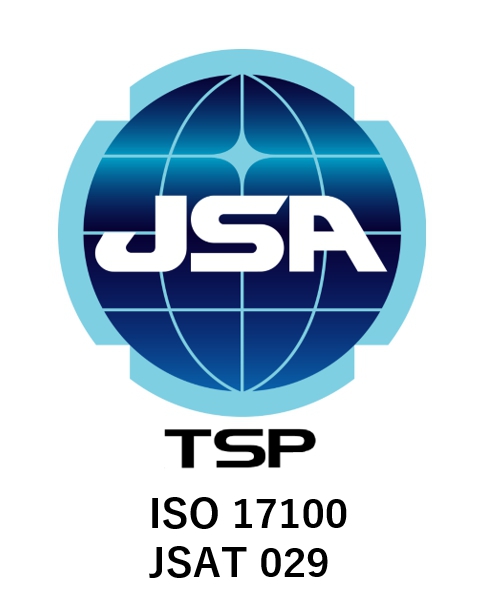
In recent years, the need for IR translation conducted by companies has increased as globalization progresses. This article will provide a detailed explanation of IR translation.
- Table of Contents
-
- 1. What is IR?
- 2. The Necessity of IR Translation
- 2-1. Progress of Globalization
- 2-2. Diversification of Investor Base
- 2-3. Mandatory Disclosure in English
- 3. Common Challenges in IR Translation
- 3-1. In-house personnel cannot secure the translation and checking capabilities necessary for English disclosure.
- 3-2. There are times when we cannot meet the disclosure deadline due to short delivery times.
- 3-3. Temporary translation is possible, but there is no prospect for updates or continuation.
- 3-4. Concerns about the risk of lawsuits due to insufficient checking systems and mistranslations.
- 3-5. It is also necessary to organize existing English documents within the company.
- 4. Key Points for Efficient and Accurate IR Translation
- 4-1. Development of a common glossary within the company
- 4-2. Selection of Appropriate Outsourcing Partners
- 4-3. Consideration of the Translation Process
- 4-4. Consideration of the Use of Machine Translation
- 5. Summary
1. What is IR?

IR stands for Investor Relations, which refers to activities aimed at building relationships between companies and investors. Companies provide appropriate information necessary for investment decisions, such as financial status, management strategies, and business outlook, to shareholders and potential investors. Various means are used for this, including holding earnings briefings, issuing annual reports, and individual meetings between IR representatives and investors. The purpose of IR is to enhance corporate transparency and build trust with investors, thereby increasing corporate value. Additionally, by obtaining feedback from investors through IR, it can also contribute to management improvement.
In recent years, corporate social responsibility and efforts to address environmental issues have also become matters of interest for investors, so the scope of IR has expanded to include not only financial information but also non-financial information.
2. The Necessity of IR Translation

2-1. Progress of Globalization
As globalization progresses, companies are actively expanding their operations across borders. To enter overseas markets and raise international capital, effective communication of information to foreign investors is essential. A company's financial status and management strategy are important factors for investors when making investment decisions. However, language barriers can make it difficult to convey accurate information to foreign investors.
Therefore, it is essential for companies to provide information in foreign languages, including English. Specifically, they create annual reports, press releases, and IR materials in foreign languages to communicate with overseas investors.
In addition, the preparation of financial statements based on international accounting standards and the holding of IR briefings in foreign languages are also conducted. Through these initiatives, companies can accurately convey their strengths and growth strategies to overseas investors. As a result, they can attract investment from abroad and achieve global fundraising.
2-2. Diversification of Investor Base
In recent years, the diversification of the investor base has been progressing. Traditionally, institutional investors were at the center, but now the presence of individual investors is increasing. Individual investors have found it easier to participate in the stock market due to the spread of the internet and the improved convenience of online trading.
Additionally, with the establishment of an environment where even small investments can be made, more individuals have become interested in investing. As the investor base diversifies, companies are compelled to reconsider their methods of information dissemination. Institutional investors and individual investors have different needs and levels of understanding regarding information, so it is necessary to provide information that is suitable for each. Furthermore, with the advancement of globalization, it is essential to also pay attention to overseas investors, not just domestic ones. To provide fair and highly transparent information to a wide range of domestic and international investors, multilingual information dissemination is indispensable.
2-3. Mandatory Disclosure of English Documents
The Tokyo Stock Exchange will require listed companies on the Prime Market to disclose financial results in English starting in April 2025. As globalization progresses, the aim is to enhance the appeal of the Japanese market to overseas investors and attract investment funds. The disclosure of financial summaries and timely disclosure information in English will be mandatory. In the future, it is being considered to include securities reports and other documents as well.
3. Common Challenges in IR Translation

3-1. In-house personnel cannot secure the translation and checking capabilities necessary for English disclosure.
In IR translation, it is not easy to secure personnel with advanced translation skills and expertise necessary for English disclosures within the company. Accurately translating specialized terminology and expressions related to finance and law requires not only language proficiency but also a deep understanding of those fields.
In addition, during the post-translation review process, it is necessary to have the ability to understand the intent of the original text and check for mistranslations or unnatural expressions. Cultivating and securing personnel with such advanced translation and review skills has become a challenge for many companies.
3-2. There are times when we cannot meet the disclosure deadline due to short delivery times.
IR materials need to be disclosed promptly in line with important events such as financial announcements. However, translation work can take time, which may result in an inability to meet short disclosure deadlines.
In particular, when outsourcing translation, it takes time for schedule adjustments and communication, increasing the risk of delays. When translating in-house, there is a possibility of being flexible even with short deadlines, but the challenge of securing personnel remains.
3-3. Temporary translation is possible, but there is no prospect for updates or continuation.
IR materials are not a one-time creation; they need to be updated regularly. However, if the internal translation system is not in place, it may be possible to do temporary translations, but it becomes difficult to handle continuous updates. Additionally, every time the translator changes, there is a possibility of losing consistency in terminology and expressions.
3-4. Concerns about the risk of lawsuits due to insufficient checking systems and mistranslations.
To ensure the quality of translated materials, a strict checking system is essential. Especially for important documents such as financial reports, mistranslations can lead to legal issues and litigation risks. If a sufficient checking system is not established, the risk of disseminating misinformation and losing trust from investors increases, which can have serious consequences for the company. To avoid such risks, it is necessary to strengthen the quality management process of translations.
3-5. It is also necessary to organize existing English documents within the company.
When translating IR materials, it is necessary to maintain consistency with existing English documents. However, if the internal English documents are not organized, the translation process can become inefficient, and inconsistencies in terminology and expressions may arise. Therefore, in order to efficiently carry out IR translations, organizing existing internal materials is also an important issue.
4. Key Points for Efficient and Accurate IR Translation

4-1. Development of a Common Terminology Database within the Company
We will create a unified glossary for specialized terms and frequently used words that are used within the company, ensuring that all stakeholders have a common understanding. This will facilitate smoother internal communication and improve the efficiency of document creation.
Additionally, when communicating with external contractors, it becomes less likely to cause confusion regarding the meanings and usage of terms. It is important to regularly update the glossary to maintain its latest state. When using translation tools, make use of the glossary feature to ensure consistency of terms within the translated text.
4-2. Selection of Appropriate Outsourcing Partners
When outsourcing IR translation, clearly communicate the expected quality level by providing specific examples. If there are past translations, we will provide that data. We will also consider the scope of the outsourcing and may think about in-house production for certain parts as needed. We will check the schedule to ensure that there is enough time to meet the deadline.
4-3. Consideration of the Translation Process
If there is no time in the schedule, we will consider the process of translating the final version after translating the draft version. By utilizing a database called translation memory, which is included in translation support tools (CAT tools), we can easily reuse sentences that have been translated once. Therefore, if we translate the draft version in advance, we only need to translate the differences in the final version to complete the document. For more information about CAT tools, please see the article below.
What Are CAT Tools? Introducing the Benefits and Drawbacks
4-4. Consideration of the Use of Machine Translation
By utilizing machine translation, the translation period can be shortened. To do this, it is essential to first check the accuracy of the machine translation and consider whether it can be utilized for IR translation. It is also important to have a glossary function that ensures proper translation of proper nouns such as service names and product names. It is advisable to avoid using the results of machine translation as they are, and human verification is always required (this process is called post-editing). This allows for increased work efficiency while ensuring a certain level of quality. However, caution is necessary when using free machine translation services, as they may lead to information leakage. For more details on the confidentiality policy of DeepL, a highly rated machine translation service, please see the article below.
5. Summary
This article explains the increasing necessity of IR translation, what IR is, the challenges of translation, and efficient methods. Due to globalization and the diversification of investor demographics, providing information in foreign languages has become essential. However, there are also challenges such as ensuring translation capabilities in-house, responding to short deadlines, and continuous updates. To conduct efficient IR translation, it is important to develop a glossary in-house, select appropriate external partners, and utilize machine translation.
At Human Science, we offer the automatic translation software MTrans for Office and MTrans for Trados, which can utilize DeepL and ChatGPT. Since it connects to the API, you can use DeepL and ChatGPT without worrying about information leaks. ChatGPT can be used not only as a translation engine, but also for transcription, rewriting, and proofreading, depending on the prompt. Try out MTrans for Office and MTrans for Trados with our 14-day free trial offer. Please contact us for more information.
Features of MTrans for Office
① Unlimited number of translatable files and glossaries with a flat-rate system
② One-click translation from Office products!
③ Security is assured with API connections
・We also offer SSO, IP restrictions, and more for customers who want further enhancements
④ Support in Japanese by Japanese Companies
・Support for security check sheets is also available
・Payment via bank transfer is available
MTrans for Office is an easy-to-use translation software for Office.
Features of MTrans for Trados
- ① Simultaneous translation using multiple machine translation engines, such as DeepL and Google.
- ② Automatic application of specific terminology to machine-translated text. Centrally managed term glossaries, regardless of the machine translation engine
- ③ String replacement, regular expression replacement, and automatic correction of translation style, notation, and expressions using ChatGPT
- ④ Automatic revision of fuzzy matches in the translation memory
- ⑤ Preservation of the original formatting and tags during machine translation
What is the Trados-dedicated machine translation solution MTrans for Trados?















